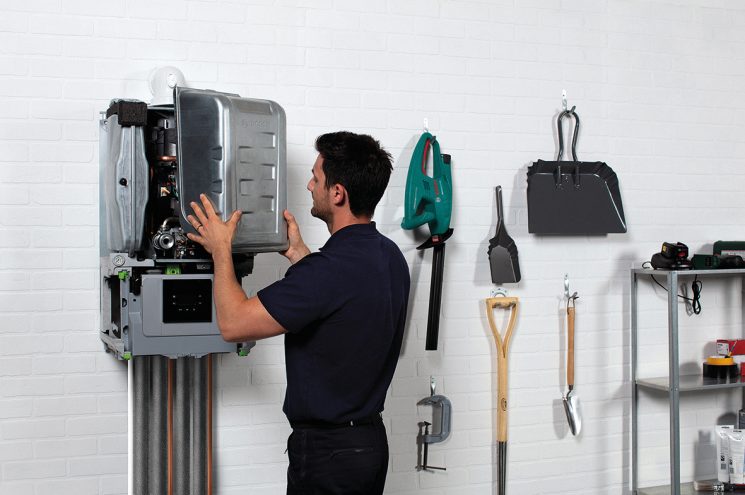A boiler breakdown is always inconvenient, especially during the colder months. There are some common problems which can be easily fixed without calling a qualified engineer, however if you are in doubt it is always advisable to contact a registered professional.
This troubleshooting guide will take you through some of the more common boiler issues, so you can quickly spot problems and potentially save yourself time and money.
1. The radiators aren’t heating
If your radiators are warm at the bottom but cold near the top, this is likely to be because of a build-up of air, an issue with the hot water pump, or rust within the pipes.
In many situations, the problem can be resolved by bleeding the radiators, which will remove any trapped air within the system. However, if this does not unblock the system, you may require a power flush.
2. The boiler switches off
There are a variety of reasons why your boiler may by switching off, including issues with the thermostat, low water pressure, air within the system, a frozen condensate pipe or a broken pump.
If the temperature is cold outside, you should try to thaw the condensate pipe. Another solution is to bleed the radiators to remove any trapped air from within the system. Alternatively, you should check the water pressure by phoning your supplier, as it could be due to maintenance work in your area.
3. The pilot light is going out
In most situations this is because of the thermocouple, however damaged seals can also cause this issue. Whatever the problem is, a pilot light repair is best left to a qualified boiler engineer.
4. A noisy central heating system or boiler
A noisy central heating system or boiler is often caused by either air or limescale within the system. Within a boiler, an issue known as kettling can occur, which is caused by limescale building up inside the heat exchanger. If the issue lies within the central heating, you will probably hear rumbling, banging or whistling pipes. These noises are also caused by limescale build-up, although it could also be due to air within the system.
To remove air and limescale from the system, you can try to bleed and power flush your pipes. However, if the noise remains, you will need to book in a service with a professional engineer.
5. The thermostat is not working
Thermostats do tend to deteriorate as they age, which will cause problems within your central heating system. However, a relatively new thermostat could also be faulty.
Firstly, check that the power supply is on and is working correctly. Next, check that the thermostat timer and clock are set correctly, as a power cut can alter these. Finally, adjust the settings on your thermostat to take into account the clocks going forward or backwards. If these steps do not solve the problem, it’s time to call an engineer.
6. The boiler is leaking
This could be caused by loose connections or broken components within the boiler. Any faults within the boiler should be fixed by a qualified boiler engineer: you shouldn’t attempt to correct any issues yourself.
7. The boiler is not maintaining pressure
A boiler losing pressure is usually a sign that there is a leak somewhere in your system. Check underneath your boiler for any drips, if you find any, then it could be that a seal has gone inside the boiler.
It may be possible to re-pressurise the boiler yourself, by following the boiler instruction manual. If this doesn’t work, a trained boiler engineer will be able to fix the problem.
8. There’s no hot water
If the system is not producing any hot water the possible causes include an airlock, a broken diaphragm, a faulty motorised valve, a broken thermostat or low levels of water.
The first places to check are the boiler pressure and thermostat. If you think that the issues lie elsewhere, an engineer will probably need to install a replacement part.
If your boiler is more than 10 years old, it’s probably time to consider a replacement boiler. As boilers age, they become more susceptible to issues and will not run as efficiently as a new model.
Eventually, the smaller issues are likely to lead to a broken boiler, which will need replacing. In many situations, a new boiler will include a parts and labour guarantee, which will remove the cost and worry associated with any repairs in the future.





